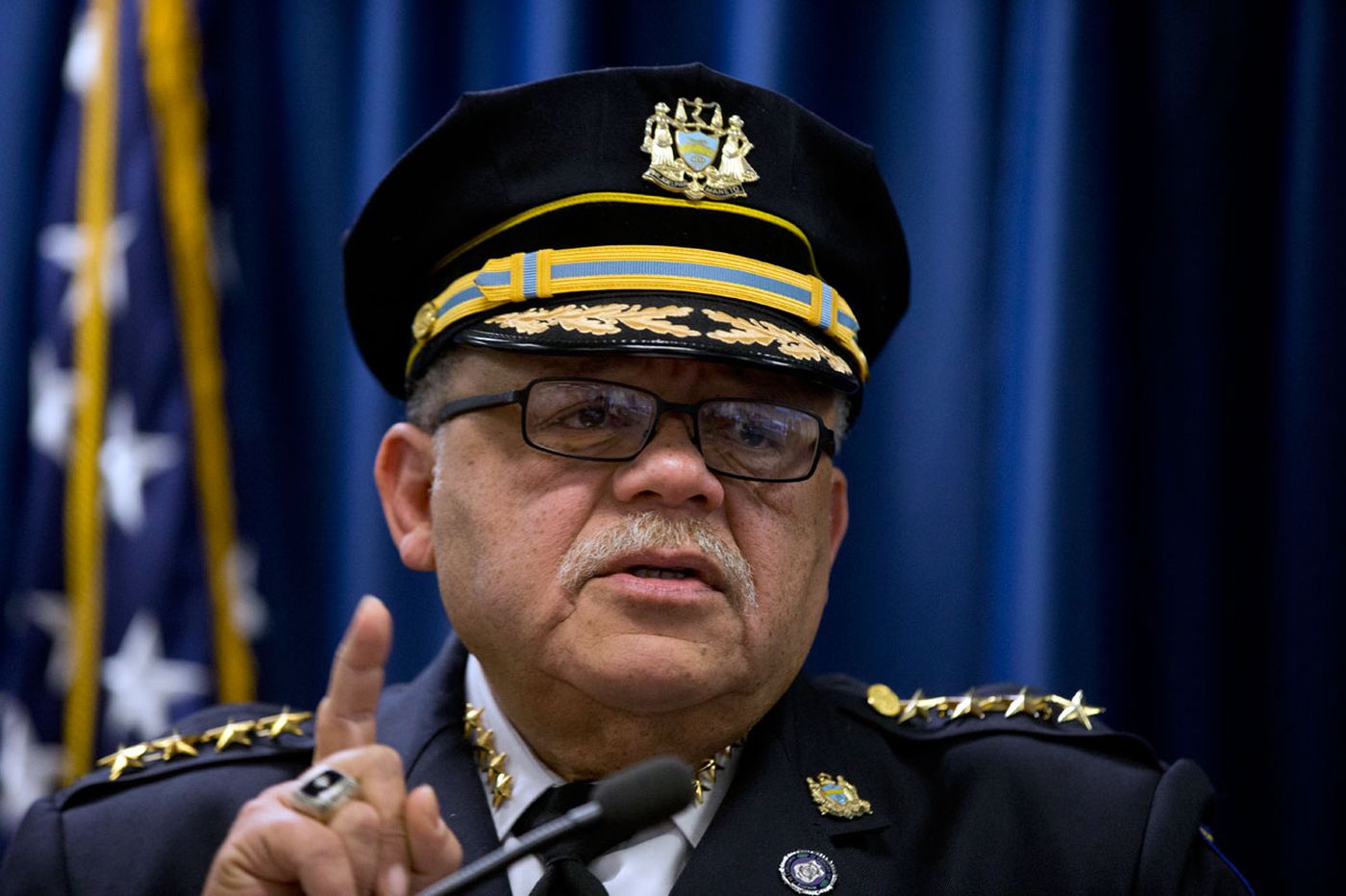The low down on Philly cops
This will end my trilogy about police, with local reporting I have done on the Philadelphia Police Department, which has been investigated many times and been under different consent decrees.

In 2015, after a Department of Justice study requested by Police Commissioner Charles Ramsey, we learned Philly cops may be ill-trained and trigger-happy, but at least they are not racist.
Are you relieved? Are you surprised? This was Eric Holder’s DOJ, not William Barr’s.
That was a key finding in the long-awaited Department of Justice study of Philadelphia's Finest. The report presented findings that were sometimes surprising.
Between 2007 and 2014, Philadelphia cops shot at 394 people, an average of almost one a week, the report says. 59 of them, or 15%, were unarmed. In about half those cases, cops said they believed the suspect was reaching for a weapon, in others the suspect was fighting with police.
"Unarmed" doesn't mean not dangerous, but officers are supposed to shoot only to protect themselves or someone else from imminent death or serious bodily injury.
African-Americans were 80 percent of the total shooting victims, but the unarmed suspects were more likely to be white.
In a majority of cases, unarmed black suspects were shot by black officers.
The facts do not support any “open season on blacks,” so can we give that one a rest?
Are there racist cops? Sure, but the report doesn't present them as a major issue. A bigger problem than being shot at by cops — that happens to few of us -- is being treated rudely. Lots more of us get that.
The "command voice," the growled order to comply without explanation, the casual impertinence, obscenities, manhandling, followed by release without apology, is too common. Perhaps "courtesy" should be added to the PPD motto "Honor, Integrity, Service." Public servants ought to act like it.
The report made a staggering 91 recommendations. Mayor Michael Nutter created a 15-member oversight board to enact the recommendations. Changing police culture is hard.
In Philadelphia, the report said, there are far more police shootings than in New York City, which has 40,000 police, contrasted to Philly's 6,500-person force.
That is stunning. Clearly, better training and supervision is required here.
Next issue: our criminal cops.
Over the past several decades, there have been dozens of cops charged with crimes ranging from shoplifting to drug dealing to sexual assault to murder. This has contributed to a chasm between cops and community, which benefits neither.
Cops complain about the "no-snitch" street culture, but they have a culture just as insidious —the Blue Code of Silence.
Yesterday I proposed PPD developing an Honor Code, such as used in our military academies, to undermine the Blue Code.
I referenced heroic NYPD cop Frank Serpico, whose experiences were turned into a 1973 movie starring Al Pacino. The Brooklyn-born Serpico was the first New York cop to testify about widespread corruption in his department. He pointed his finger at his brother officers.
After that, on a drug raid, he was shot in the face and his brother officers, who probably steered him into an ambush, neither backed him up nor called for an ambulance. Serpico had broken the code and almost died.
This is not a great selling point for imposing an Honor Code. As I have noted, turning in bad cops can be unhealthy for good cops, but we ask police to be brave.
Straight-arrow cops tired of having their reputations blackened by the thugs need to step up.
"From all the cops I hear from trying to report," says Serpico, "no matter how high they go, they are told, 'Listen, we can't expose this because it will undermine the public's confidence in police.' They don't understand that confidence is already undermined." There is a "quagmire of putrid flesh in police departments across the country," he says. "Some are mentally unstable, they are bullies."
The lid wasn't blown off the garbage pail until Serpico went to The New York Times, which put his story on Page 1.
Given the grief, why did he do it and why should any other cop do it, I ask him.
"Do you want to live with this, work with this kind of trash? It's an honorable profession," says Serpico. "You keep your honor, your dignity. You can face your kids, your community and your country and you save your honor."
Right now, the good cops fear the bad cops instead of the other way around.
Every department needs a Serpico, more than one.



